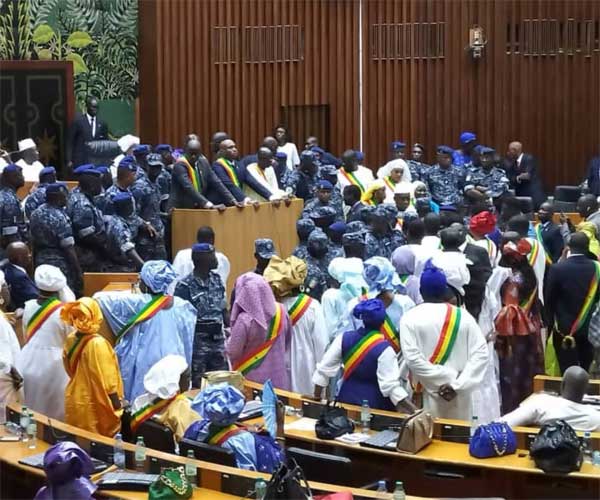Illegitimate Anger Follows a Predictable Debacle

I find myself astonished at the astonishment of the Senegalese people at the spectacle that our honorable deputies presented to us during the inauguration of the XIVth legislature. We are in a system of representative democracy and the deputies are therefore in the image of those who elected. The debacle of the instalment of the XIVth legislature is simply what we have become. On the political level, Senegal at independence went from the debate of the academics with Léopold Sédar Senghor, Cheikh Anta Diop, Abdoulaye Wade, to now Karim Xrum Xrax. For the Parliament, we went from intellectual nobility like Fara Ndiaye of the PDS, Abdourahim Agne of the PS, Ousmane Ngom of the PDS, Djibo Ka of the URD, to now gladiators and loudmouths. The Civil Society which, fortunately, stumbled upon the public debate in the march towards the first transition in 2000, and had contributed a lot to the awakening of the citizen’s conscience, has become today a den of agitation traders.
We have gone from Mame Adama Guèye and his citizen juries to audit presidential candidates and thus create debate, to the inquisition of « Professor » Cheikhou Oumar Diagne and the permanent ignominy of the double punishment that the media are imposing on the family of Judge Babacar Sèye with the media presence of Clédor Sène. This man, convicted of the murder of a constitutional judge, has no place in the public debate. The image of Guy Marius Sagna, standing on the tables of the Hemicycle, illustrates what the Senegal of Senghor and Me Lamine Guèye has become. It is not a matter of rules of procedure or civics, but one of basic education.
We are far from the British Parliament where a simple table has separated the Prime Minister from the Leader of the Opposition for centuries, or the American Congress where, during the assault on the Capitol, the fury came from outside. What we saw yesterday in the Assembly reflects what Senegal has become politically, but also intellectually. This is why I said in these columns a few months ago that the big intellectual polemic between the philosopher Souleymane Bachir Diagne and the writer Boubacar Boris Diop was of a Senegal that no longer exists, like the ruins of the Parthenon or the Colosseum that testify to the greatness of ancient Greece and Rome.
The spectacle we saw at the National Assembly can be observed every day in traffic, especially at roundabouts, which have become laboratories for the sociology of uncivil behavior. Debate is the soul of democracy. In Senegal, the debate is not poor, it barely exists. If it did exist, one would be had about Guy Marius Sagna, who on March 13, 2012, on his Facebook page, called for « a referendum on self-determination for Casamance with the agreement of the MFDC. » War is the continuation of politics by other means, Clausewitz tells us. The politics of defiling and desecrating the state and our institutions is nothing more than the continuation of the MFDC war by other political means.
The XIV legislature is already keeping its promises. It is already an Assembly of rupture because it is the first time that a deputy stands on the table and it is also the first time, or one of the few times, that law enforcement has to intervene in the Hemicycle since the events of 1962. « The militant acting as a deputy by voting one way or another, commits, beyond the party, the whole Nation… The party is a fraction of the country, it has authority and jurisdiction only over its militants, while the UPS deputies and others, by voting one way or another, commit the whole country. » Thus spoke, on February 26, 1963, President Lamine Guèye before the investigating judge as a witness, as reported by Ousmane Camara in his book Memoirs of an African Judge.
In the 1960s, the fragility of our institutions was compensated by the greatness of politicians who wanted to raise Senegal to their level, whereas today, very solid institutions compensate for the shallowness of the participants. The Senegalese exception was possible thanks to exceptional men like Senghor, Wade, Cheikh Anta Diop, Me Lamine Guèye, who would never have imagined that the debate would go down to the level of Karim Xrum Xrax or Kounkandé, because in their time, there was a gap between the marble of the Senate and the dust of the Colosseum.
By Yoro DIA / yoro.dia@lequotidien.sn

